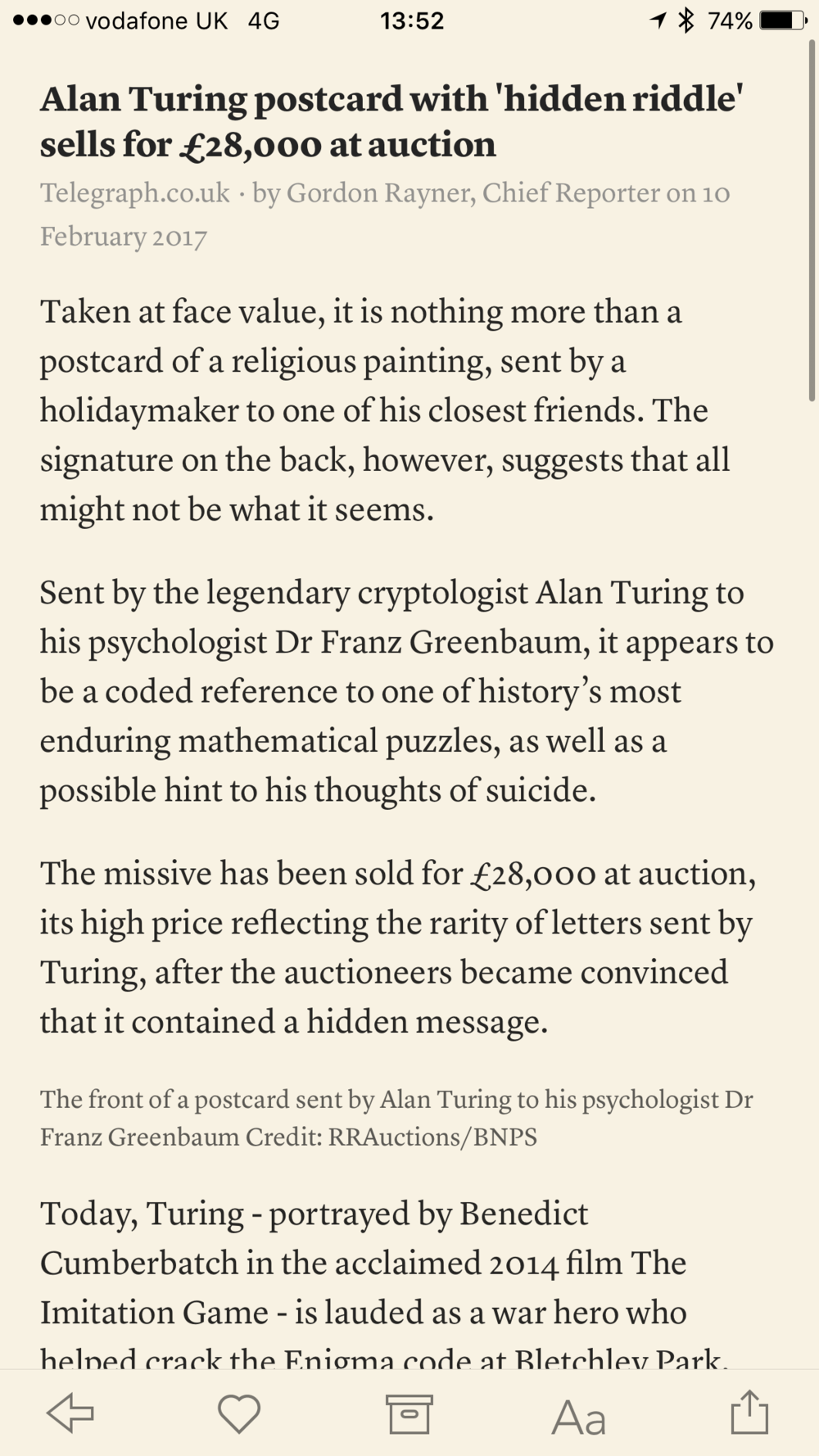
Yesterday my workflow was rudely interrupted and I was thrown into disarray. Instapaper, which is an essential part of my information filtering system, was down for all of 31 hours. This is unprecedented in my experience, and is one of the longest outages I can recall for any similar service.
Only this morning (here in GMT-land) did I regain access. Apparently the problem was caused by server overload and the technicians had to backup and restore the entire database. Even now, we have access only to items saved this year, with anything previous not due to be resurrected until February 17. That’s a minor point for me; the main thing is being able to save my items again.
More news
When something like this occurs we realise just how much we depend on our chosen systems to work faultlessly. I receive about 750 snippets of news every day, consisting of links to sites to which I subscribe using the RSS¹ system. The feed comprises a mixture of general news, technology and photography. My workflow is quickly to skim the items in a reader application (I use Reeder on iOS and ReadKit on the Mac — both synchronised from FeedWrangler which actually does the hard work of trawling the web and works entirely in the background). Anything of interest I swipe to send to Instapaper for later reading, action or filing for reference.
I can then open the Instapaper app on the iPhone or ReadKit on the Mac (this app doubles as reader and read-later platform on the Mac; as does Reeder if you prefer it) and peruse my chosen stuff at leisure. Some of this information, mainly news, is transitory and deleted immediately after reading. Other articles I transfer to folders to help build up a reference database for my writing.
It’s possible to search Instapaper on keywords so, for instance, if I wish to write about a particular lens or a camera I can immediately find all the relevant links to help with research. I can also create smart groups which keep the search results in a permanent reference folder, adding to them as new stuff comes in. I now have an extensive database, going back several years, and the advantage over an ordinary Google search is that I have already filtered all these items as being of sufficient interest or of sufficient quality for my needs.
The point I want to make is that this all operates behind the scenes. It just carries on working and we eventually take it for granted. Until it is no longer there. As with many things, we don’t miss them until we no longer have them. Yesterday, with no Instapaper, I couldn’t comfortably read the news because I knew that I would not be able to save the information for future use. To say the least this was a pain.

No rabbits
Increasingly we rely on electronic systems in our daily lives. Without them we are lost. Equally, few of us these days can start a fire with a flint; few of us, Bear Grylls excepted, could look after ourselves adequately without electricity to pander to our every whim and a supermarket down the road for sustenance. Bugger killing rabbits. And the internet isn’t far behind in being essential to our technological wellbeing. So much we do nowadays is dependent on technology. The thought of losing it is definitely a worry, if a only First-World worry.
Anyway, after this 31-hour hiccup, my personal workflow system is all up and running again. Temporary peace in our time and fingers crossed this isn’t a Chamberlain moment.
The Daily Telegraph feed (seen in the accompanying illustrations), incidentally, is an example of a news site that offers an RSS feed but restricts actual visits to the site to small number of articles per day. Yet with RSS and Instapaper I can read unlimited articles in plain-text format.
I seldom need to go direct. The Daily Mail also has a good RSS feed although the paper isn’t everyone’s cup of tea. The paper doesn’t restrict access in any way. In contrast, The Times hides entirely behind a firewall with no opportunity to take an RSS feed. The result is that I no longer read it and, if you search references on the internet, few appear to notice it at all. The newspaper is seldom mentioned outside its own circle of readers. Once known as “The Thunderer”, it is now more “The Whimperer” as a result of these policies. These are just a few examples from a UK perspective but the principles apply worldwide.
¹ For those who are not familiar with Instapaper, it is a reference repository for read-it-later snippets, in many cases for selected links to news and feature articles that come in daily under the RSS (originally from “RDF Site Summary” but generally now referred to as “Really Simple Syndication”) service.
________________
